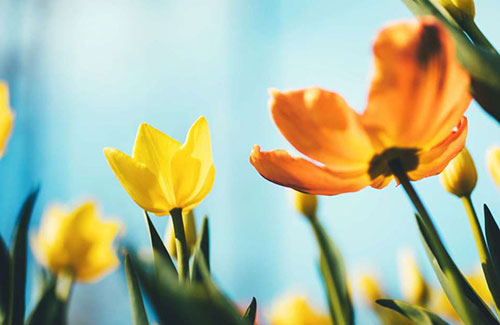春天来了,给你介绍15个春韵十足的英语单词
|
1. Vernalagnia Derived from lagneia, a Greek word meaning "lust," vernalagnia is a more formal name for what’s otherwise known as "spring fever"—a brighter and often more romantic mood brought on by the return of fine weather in the spring. One 1958 medical dictionary described vernalagnia as the “awakening of sexual desire in the spring.” 2. Reverdie /rɛvə’diː/ Borrowed into English in the late 1800s, the word reverdie has a long history in its native French dating back as far as the 14th century at least: Derived from a verb, reverdir, meaning “to become green again,” a reverdie is a song, poem or dance performed in celebration of the return of the spring. 3. Valentining Since the 19th century, the chirruping of birds during the spring mating season is known as valentining. 4. Chelidonize If you want to be even more specific, though the verb chelidonize is a proper word for the chirping of swallows as they fly overhead. It derives from the Greek word for swallow, chelidon—which is also the origin of the 17th century adjective Chelidonian. 5. Chelidonian As well as being used to describe anything the deep red color of a swallow’s throat, Chelidonian winds are warm spring winds, so called because they tended to start blowing around the same time that swallows and martins began to return in the spring. 6 - 7. Erumpent [ɪ'rəmpənt], breard A word for the re-emerging of plants above the ground in spring, the 17th century adjective erumpent describes anything that bursts forth. The very first appearance of a plant above the ground, incidentally, is called the breard. 8 - 11. Frondescentia, frondescent, frondescence [frɔn'desəns], and frondesces According to an 18th century dictionary of botanical terms, Frondescentia is “leafing season,” or “the time of the year when plants first unfold their leaves.” Likewise, a plant that is frondescent is just beginning to bud or produce leaves; frondescence is the process of budding or producing leaves; and when a plant frondesces, then it grows or puts forth leaves or buds. All four of these come from the Latin word for “leaf,” frons. 12. Routering-bout Router is an old Yorkshire dialect word meaning “to rush around noisily,” or, as the English Dialect Dictionary puts it, “to make a search amidst a confusion of things.” Derived from that, a routering-bout is a thorough spring-cleaning of a house. 13 - 15. Floriage, floriation, and efflorescence /ɛflə’rɛs(ə)ns/ Coined in the 18th century, floriage is blossom, or the collective flowers of a plant or tree. Likewise, a floriation is a decoration made of flowers, while efflorescence is the development or production of blossoming flowers. |









